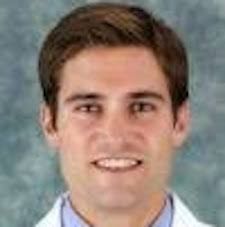Article
PCR CT Could Help Augment Underperforming CDI Recurrence Models
Author(s):
Among 1660 cases with only PCR data, the cycle threshold was significantly associated with recurrence-free survival.
Gregory R. Madden, MD
Credit: University of Virginia

Investigators may have tapped into a new way to predict recurrence for clostridiodes difficile infections (CDI) by looking at various biomarkers based on the host immune response.1
A team, led by Gregory R. Madden, Division of Infectious Diseases & International Health, Department of Medicine, University of Virginia School of Medicine, examined representative markers of C difficile pathogenesis, including immune cytokines, anti-toxin antibodies, PCR CT as a marker of stool organism burden, and stool toxins with A/B and binary toxin for predicting recurrent C. difficile infection using Bayesian machine learning.
Traditional Models
Traditional clinical models predicting recurrent CDI are notoriously inaccurate, mostly due to the complex host-pathogen interactions involved.
One potential way to improve accuracy is by using novel biomarkers to prevent recurrence by improving underutilization of effective therapies, including fecal transplantation, fidaxomicin, and bezlotoxumab.
“Unfortunately, uptake of these interventions is poor despite their adoption by consensus guidelines for CDI management, likely owing to their high costs and the lack of well-defined risk strata for recurrent C. difficile infection,” the authors wrote. “Accurately predicting which C. difficile infections will recur at the time of infection using conventional clinical factors has proven difficult.”
Immune Response
There is more and more evidence suggesting the host immune response is crucial in dictating future outcomes in patients with CDI.
In the study, the investigators used a biorepository of 257 hospitalized patients with 24 featured collected at diagnosis, including 17 plasma cytokines, total/neutralizing anti-toxin B IgG, stool toxins, and PCR cycle threshold, which is a proxy for stool organism burden.
The team used Bayesian logistic regression models to select the best set of predictors for recurrent infections.
The investigators then used a large PCR-only data set to confirm that PCRCT predicts recurrence-free survival using Cox proportional hazards regression. The top model-averaged features were interleukin 6 (IL-6), PCR CT, endothelial growth factor, IL-8, eotaxin, IL-10, hepatocyte growth factor, and IL-4.
The results show the accuracy of the final model was 0.88 and among 1660 cases with only PCR data, the cycle threshold was significantly associated with recurrence-free survival (hazard ratio [HR], 0.95; P <0.005).
The investigators also found certain biomarkers associated with CDI severity were particularly crucial for predicting recurrence, including PCRCT and markers of type 2 immunity (endothelial growth factor [EGF], eotaxin) as positive predictors of recurrence.
On the other hand, type 17 immune markers, including IL-6 and IL-8 were negative predictors.
“In addition to novel serum biomarkers (particularly, IL-6, EGF, and IL-8), the readily available PCR CT may be critical to augment underperforming clinical models for C. difficile recurrence,” the authors wrote.
References:
Madden, G. R., Rigo, I., Boone, R., Abhyankar, M. M., Young, M. K., Basener, W., & Petri, W. A. (2023). Novel biomarkers, including tcdb PCR cycle threshold, for predicting recurrent clostridioides difficile infection. Infection and Immunity. https://doi.org/10.1128/iai.00092-23





